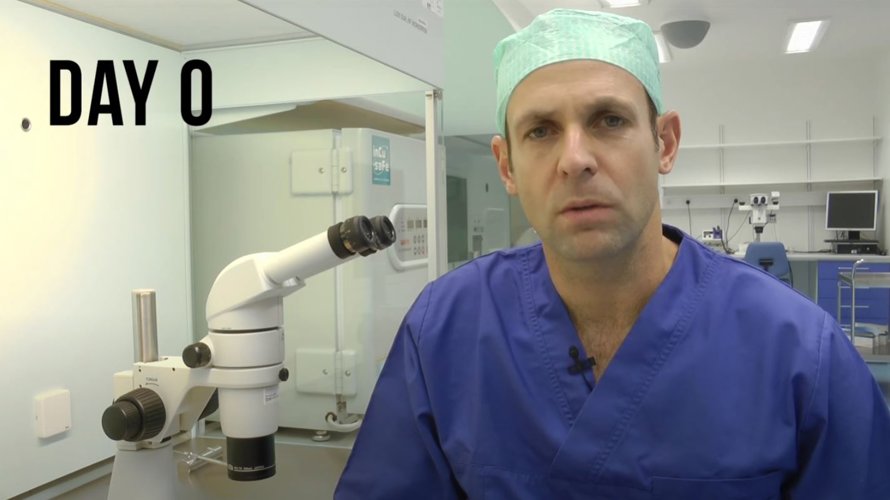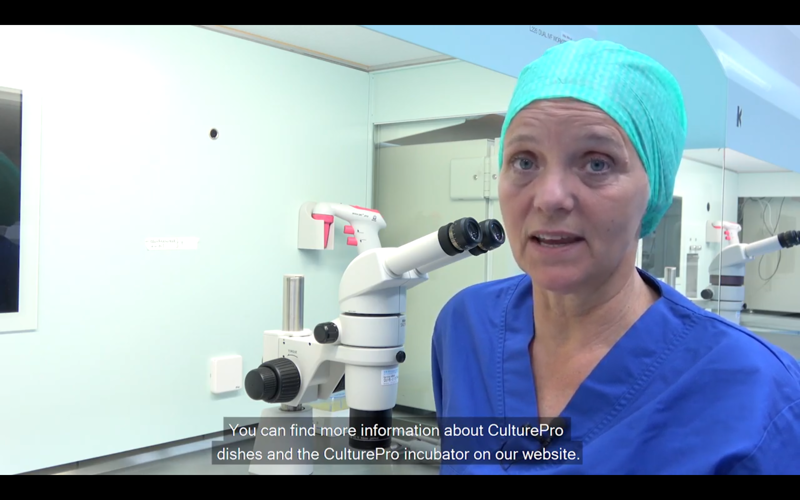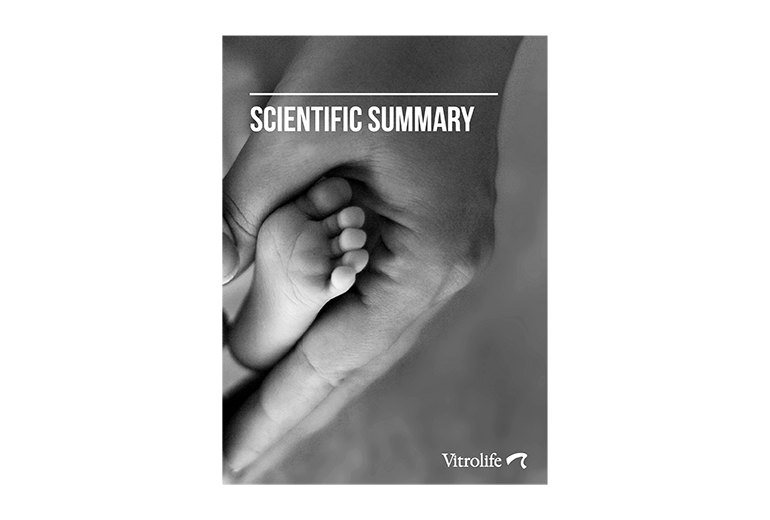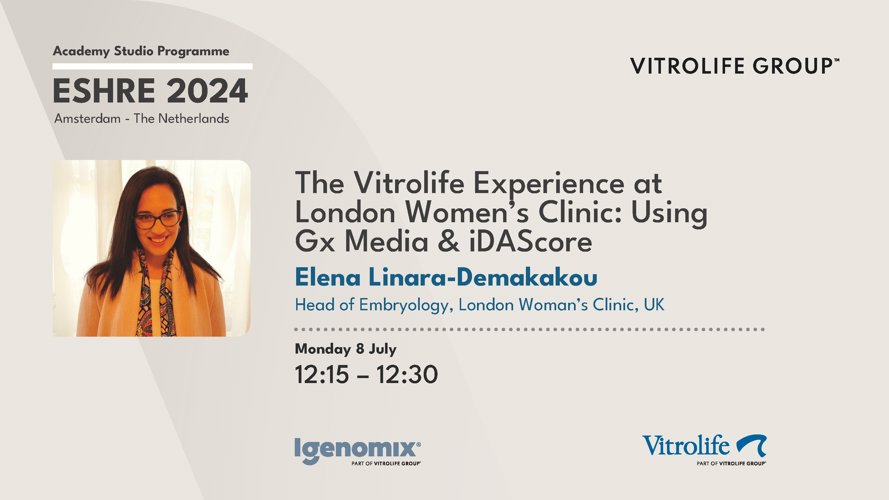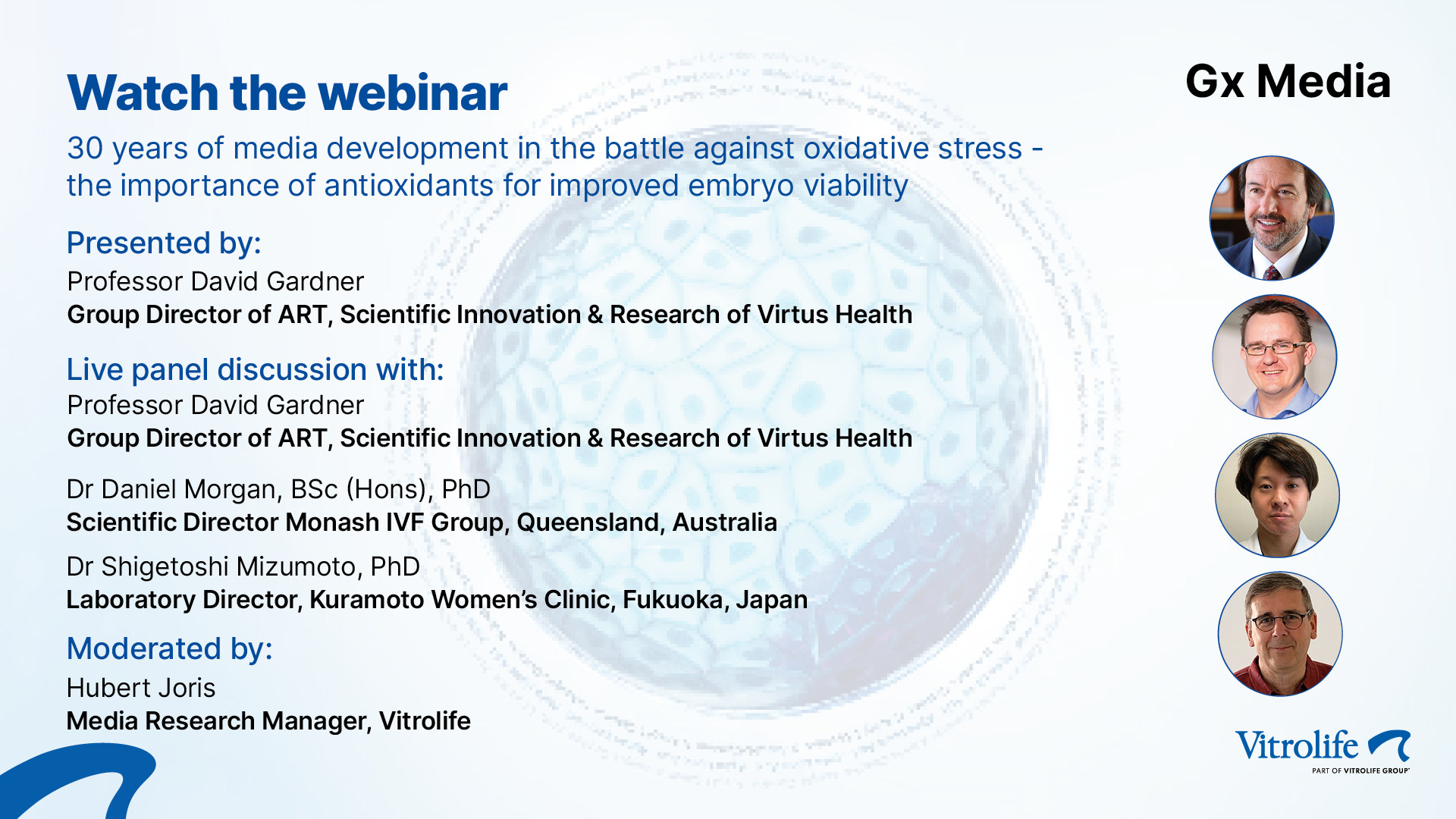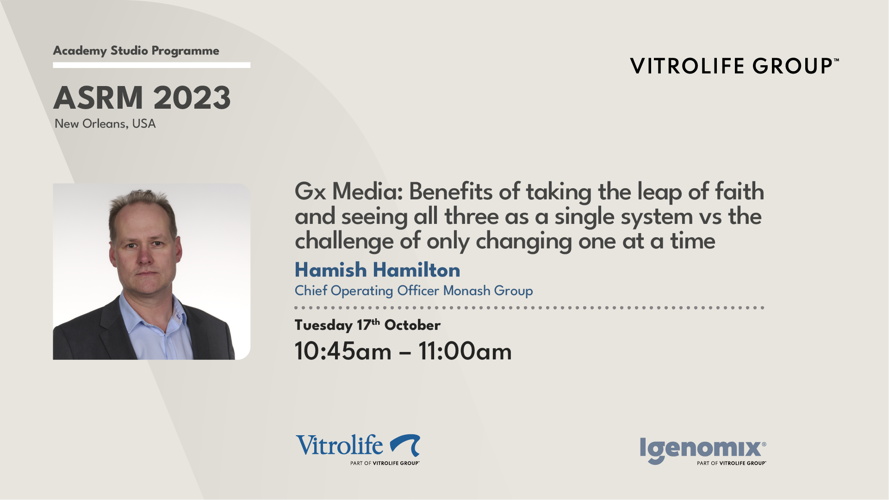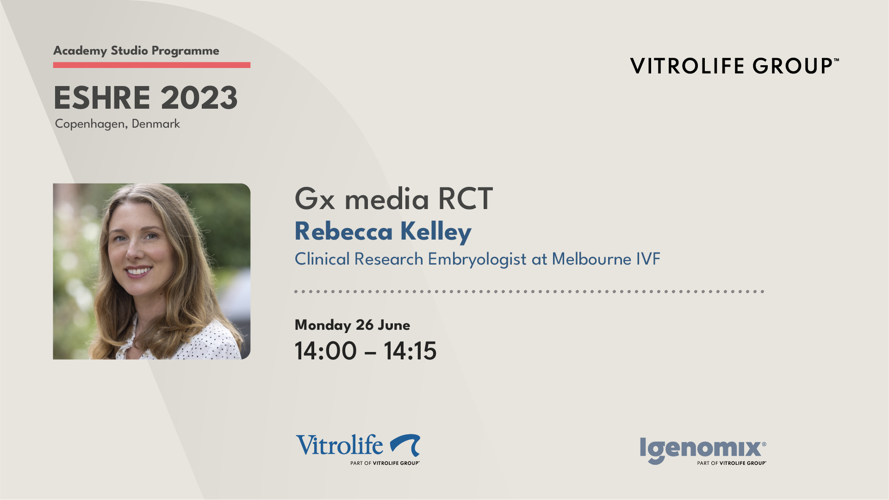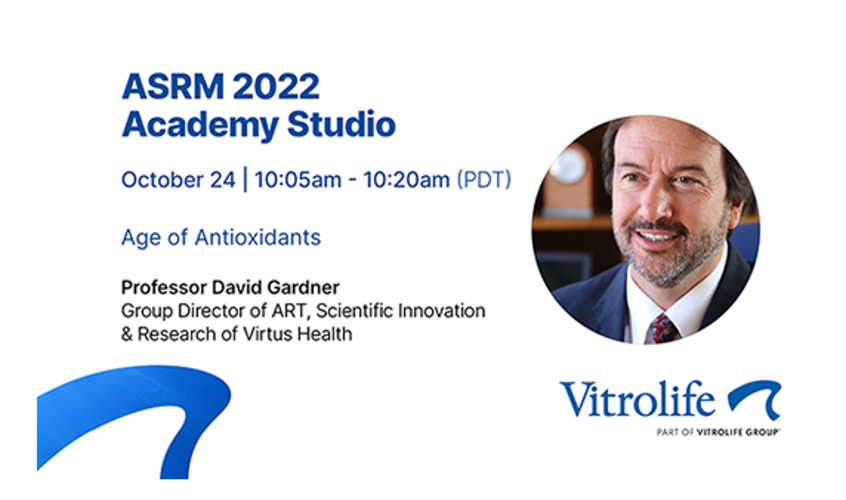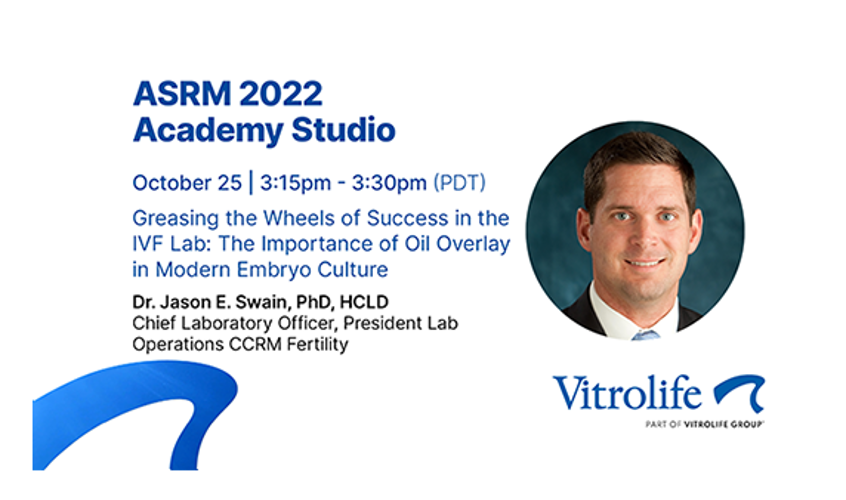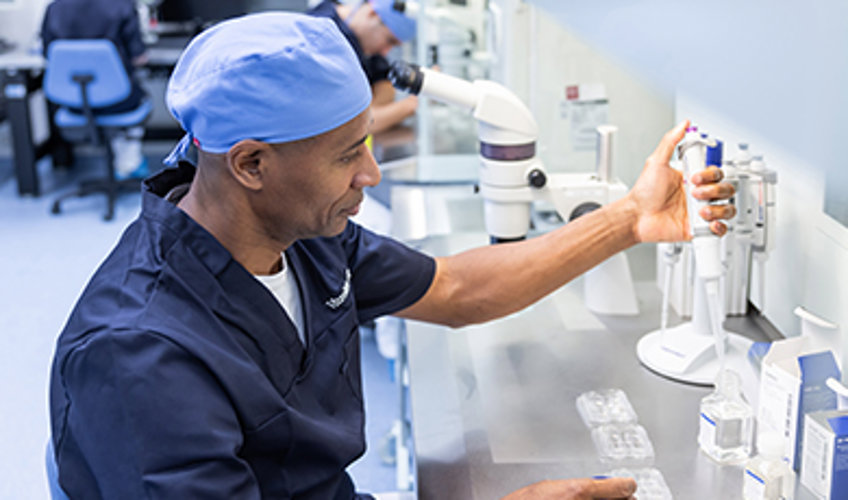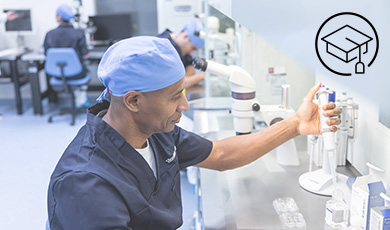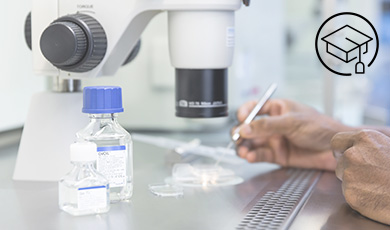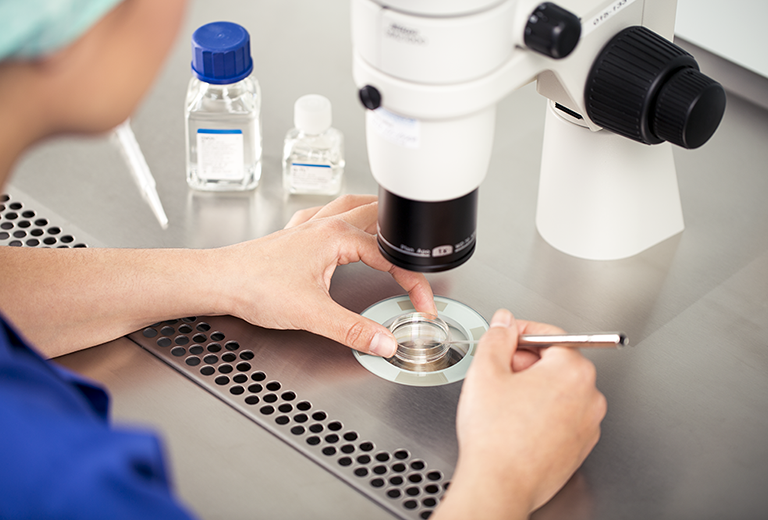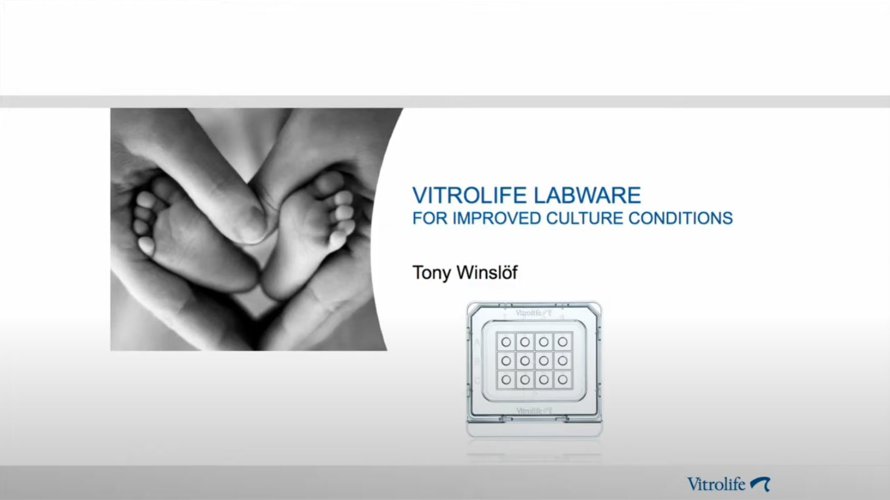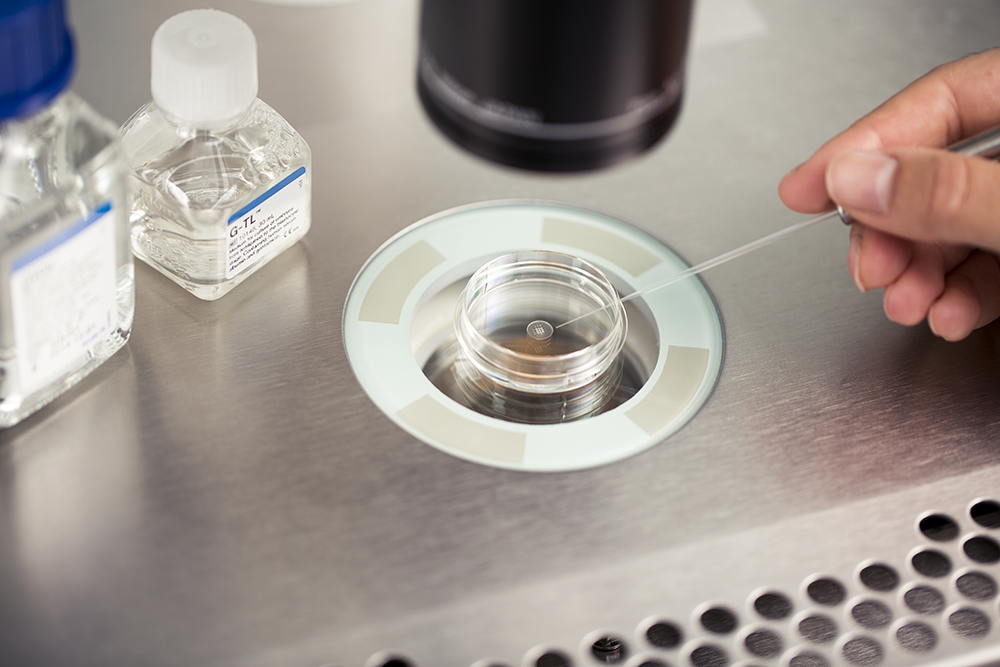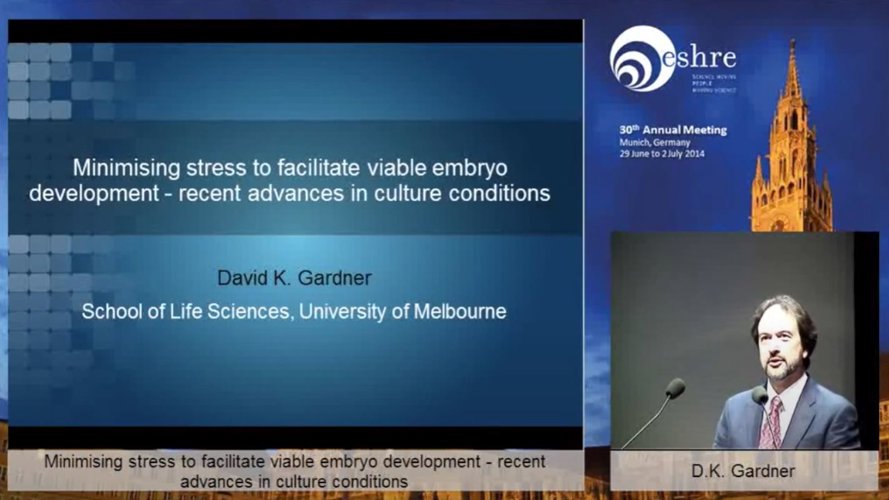Culture
How to use these products
-
![]()
Embryo culture using G-1 and G-2
This movie demonstrates how to perform embryo culture using culture media G-1, G-2, G-MOPS PLUS and OVOIL.
-
![]()
Preparation of CulturePro dishes
Learn how to prepare and load the CulturePro dishes for the CulturePro incubator in this video.
Read up on studies
-
![]()
G-Series culture media improve blastocyst development
Data from two studies presented at Annual Meeting of the Japanese Society of Clinical Embryologist show that good quality embryo rate and blastocyst development can be improved when using G-Series culture media (G-IVF, G-1 and G-2) from Vitrolife compared to a HTF-based non-hyaluronan containing media.
Read scientific summary -
![]()
Embryo culture in G-Series results in significantly higher cell numbers and implantation rates compared to culture in HTF
A study by Kleijkers show that besides cell numbers and implantation rates, gene expression and certain pathways in preimplantation embryos are also affected by culture medium.
Read scientific summary -
![]()
Comparison of cover oils - OVOIL gives both more good and top quality embryos
In a study by Sifer et el, microdroplet embryo cultures covered with OVOIL from Vitrolife gave a significantly increased mean number of good and top quality embryos at day 3, compared to other commercial available oils. This difference may be explained by the origin of raw materials and the difference in quality tests performed by each company.
Read scientific summary -
![]()
The benefits of using a peroxide-free oil
Japanese researcher Otsuki and colleagues experienced reduction in fertilisation rate and impaired embryo development when they began to use a new bottle of oil at their IVF clinic. They decided to make an investigation of the root cause and found it to be high peroxide levels in the oil. Download a summary of their findings to learn more about why high peroxide levels in oil can harm the culture system and the results from peroxide values in oil from different manufacturers.
Download summary -
![]()
G-TL supports blastocyst development in large volume
In a study presented at the ACE meeting in the UK, Shaw and co-workers compared single step time-lapse medium (Vitrolife, G-TL) with sequential series media (Sage, Quinn’s advantage) in large volume culture as well as micro drop culture. They found significantly higher day 5 blastocyst development rate in the G-TL group in both large and small volume culture.
Read scientific summary -
![]()
G-Series culture media shown to increase blastocyst development compared to control
In a study by Matsuoka et al, embryo culture was done either Vitrolife’s G-Series™ culture media or a mix of sequential culture media (control). The results show that good-quality blastocyst development was more frequent after culture in G-Series media containing hyaluronan.
Read scientific summary -
![]()
Optimised clinical outcomes with blastocyst culture and cryopreservation using Vitrolife G-Series culture media
A study by Zhu et al demonstrate that extended culture before cryopreservation allows for selection of viable embryos with a high chance of implantation after warming. The high blastocyst formation rate (73.8%) using Vitrolife culture media, together with an efficient cryopreservation program resulting in survival rates of >96% should eliminate any earlier concerns about blastocyst culture and cryopreservation.
Read scientific summary -
![]()
Clinical evaluation and user experience of Vitrolife Labware dishes
Five dishes specifically developed and toxicity tested for IVF were evaluated by two clinics regarding clinical performance. The results at both clinics show that Vitrolife Labware are safe and support treatment success when used for clinical IVF. In addition, twenty clinics gave the dishes a higher score of usability than their traditional dishes showing that the new dish design is at least as user friendly as other dish types commonly used for IVF.
Read scientific summary
Increase my knowledge
-
![]()
Webinar: 'The Vitrolife Experience at London Women's Clinic: Using Gx Media & iDAScore'
Elena Linara-Demakakou, Head of Embryology, from the London Woman’s Clinic in the UK shares her experience of using the iDAScore embryo evaluation software with the Gx media in their clinic.
Watch Webinar -
![]()
Webinar: '30 years of media development in the battle against oxidative stress - the importance of antioxidants for improved embryo viability'
In this webinar, Prof. David K Gardner will lead us through the advancements in Vitrolife IVF media during the past three decades, and why antioxidants play an explicit role for embryo viability.
Watch webinar -
![]()
Webinar: 'GX Media: Benefits of taking the leap of faith and seeing all three as a single system vs the challenge of only changing one at a time'
Hamish Hamilton, Chief Operating Officer Monash Group.
Watch Webinar -
![]()
Webinar: 'Gx media RCT'
In this webinar, Rebecca Kelley, PhD, presents Gx Media RCT (Randomized Controlled Trials).
Watch webinar -
![]()
Webinar: 'Age of Antioxidants'
In this webinar, Professor David Gardner, Group Director of ART, Scientific Innovation & Research of Virtus Health., presents Age of Antioxidants.
Watch webinar -
![]()
Webinar: 'Greasing the Wheels of Success in the IVF Lab: The Importance of Oil Overlay in Modern Embryo Culture'
In this webinar, Jason Swain, PhD, HCLD Chief Laboratory Officer, President Lab Operations CCRM Fertility, presents The Importance of Oil Overlay in Modern Embryo Culture
Watch webinar -
![]()
Can a culture oil improve embryo development?
This blog post by Dmitry Nikiforov, analyzes data and facts characterizing OVOIL HEAVY and how it compliments classic OVOIL.
Read blog post -
![]()
Webinar: 'Antioxidants in human IVF - An innovation in culture media'
In this webinar Professor David Gardner is discussing the importance of antioxidants as an element of ART media and the potential for improved embryo viability. He is sharing his experience leading to the development of culture media complemented with a unique mix of antioxidants, additionally discussing the results from current clinical studies.
Watch webinar -
![]()
Webinar: 'Oil in IVF Culture - a light or heavy decision'
In this webinar Nuno Costa-Borges, scientific director at Embryotools, will discuss the importance of working with high quality oil and share his experiences of using light or heavy oil. He will talk about the handling of oil, the consequences of not using enough oil as well as the choice of oil in different culture systems.
Watch webinar -
![]()
Amino acids and ART
Read this blog post where Prof. David Gardner appreciates amino acids and the highly diverse roles they play in regulating embryo physiology. Here their functions are considered and how their supplementation to embryo culture media has contributed significantly to the increase in IVF success rates worldwide.
Read blog post -
![]()
How to ensure embryo viability in your culture system
Successful outcomes in IVF require optimal environmental conditions for gametes and embryos throughout the entire cycle. This can be accomplished by ensuring optimal pH and temperature in the incubators, and that the air in the operating theater and the laboratory is clean and free of VOC’s (volatile organic compounds). An additional step is to ensure that media and contact materials used, support embryo development by being embryo safe and free from toxicity.
Read blog post -
![]()
Vitrolife Labware - for improved culture conditions
Listen to Tony Winslöf presenting Vitrolife Labware, a series of products from Vitrolife created, dedicated and certified for use in IVF. Vitrolife Labware has been developed in close collaboration with IVF clinics with the aim of simplifying and improving daily work in the lab.
-
![]()
Do you know the characteristics of the perfect oil for IVF?
Perfect oil for IVF should do nothing but protect the culture. It should not have any negative influence on the gametes, embryos or media by adding unwanted or removing necessary components. However not all oils are or act the same. In this blog you will learn about different types of oil and things to consider when choosing oil for your IVF culture.
Read blog post -
![]()
How to create optimal culture conditions by paying attention to quality control
The human embryo is extremely sensitive to stress and surrounding factors. In fact, the embryonic stage is the most sensitive stage of the whole life cycle. This is why it is particularly important to use safe and non-toxic products during gamete handling and embryo culture.
Read blog post -
![]()
Ways to minimise stress to facilitate viable embryo development
In this lecture from ESHRE 2014, Prof David Gardner discusses different types of stresses to the human developing embryo and presents ways create environments and media that restrict the impact of such in vitro-induced stresses.
